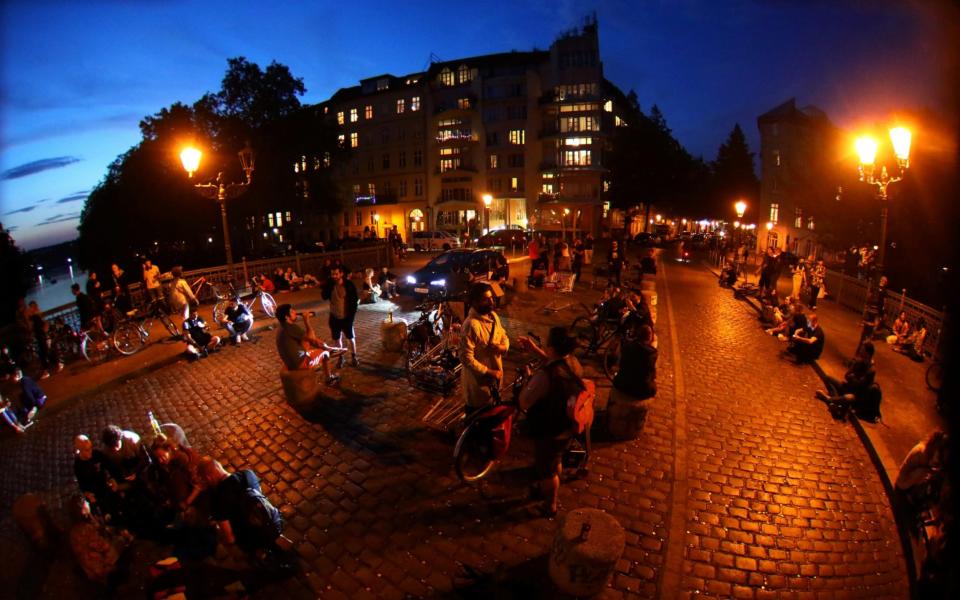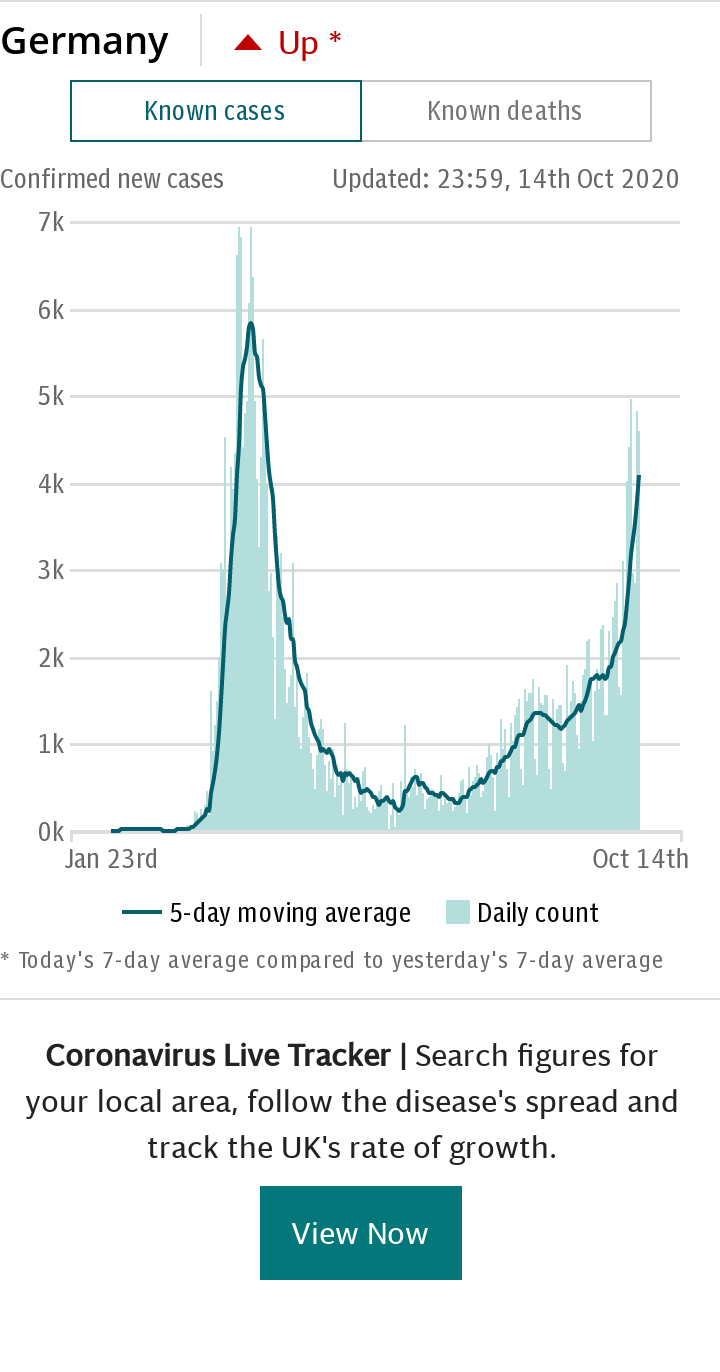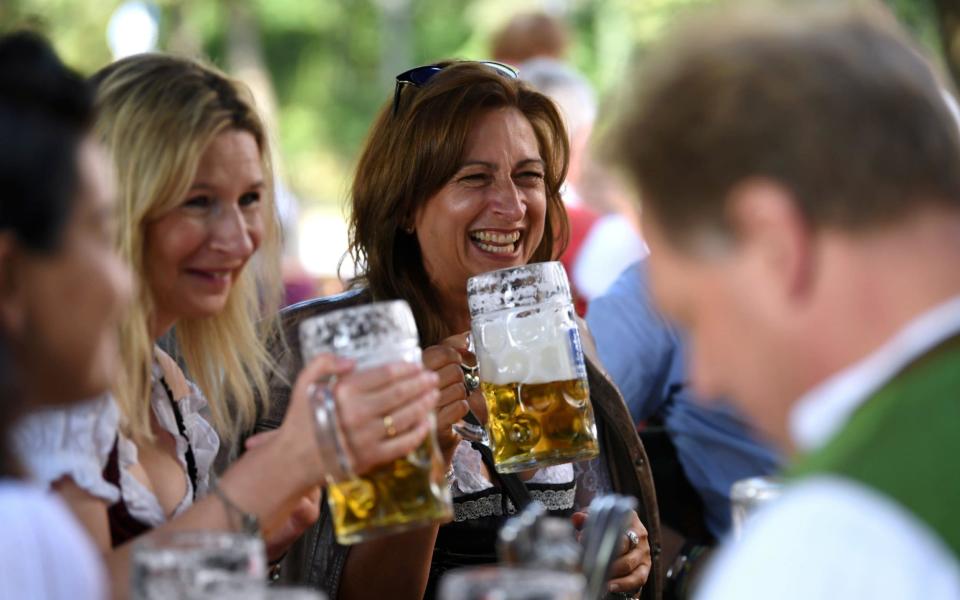How Germany avoided Covid catastrophe - with 'luck and tests'

While there are various theories about why coronavirus infection rates are lower in Germany than the UK, one thing is clear: it has nothing to do with Boris Johnson’s assertion that Britain is a more “freedom-loving country” where people are less likely to follow the rules.
While parts of central London resemble a ghost town, central Berlin is busier than ever. The pubs are overflowing, and people routinely ignore the requirement to wear masks unless sitting.
Police had to break up a “floating rave” a few months ago, when 3,000 club-goers ignored social distancing rules and jammed the city’s narrow canals with rubber dinghies.
In Munich this week, pubs responded to the cancellation of the annual Oktoberfest beer festival by setting up their own “Alternative Oktoberfest”, prompting fears the virus will be spread anyway.
“People are already making celebratory speeches about the German success, but it’s not quite clear where it came from,” Prof Christian Drosten, the German government’s chief advisor on the crisis, said on Wednesday.
“We responded using exactly the same measures as others. We haven't done anything particularly well. We just did it a bit earlier.”

The numbers tell a sobering story. Last month, as infections began to spike in the UK, the same thing was happening in Germany.
On August 14, 1,440 new infections were recorded in the UK, compared to 1,449 in Germany. But while they have continued to rise in the UK, in Germany the curve has flattened again.
On Tuesday, 4,926 new cases were recorded in the UK, compared to 1,821 in Germany. There have been no new lockdown measures in Germany, and life has been less restricted than in the UK — there is no equivalent of the “rule of six”, and as many as 1,000 people are allowed at gatherings in some regions.
Modern Germany is by most measures a less regulated society than the UK. There is no alcohol ban on Berlin’s public transport.
Smoking is still allowed indoors in designated “smokers’ pubs”. Nor is Germany a nation of compliant law-abiders.
It is compulsory for those visiting restaurants to leave their contact details under the coronavirus rules, but in several recent cases, restaurants report that “Mickey Mouse” and “Donald Duck” appear to be among their most frequent guests.
Even the experts disagree on why Germany’s infection rate is lower. Some say it’s just luck. Prof Drosten says the second wave is on its way, it just hasn’t arrived yet.

But one area where they all agree Germany is getting it right is testing.
“We don't have a magic bullet in Germany, we are just a little bit lucky I think,” Prof Hajo Zeeb of the Leibniz Institute for Prevention Research and Epidemiology told The Telegraph.
“We have stepped up the testing. I know that’s also happening in the UK, but from what I read it doesn’t sound like it’s all that functionable on the ground in the UK. Maybe that’s a little bit better in Germany.”
The UK currently carries out more coronavirus tests a week than Germany, but experts say it’s not just a numbers game.
Germany managed to avoid the ever-changing quarantine rules and dashes home to beat the deadline which blighted Britons’ summer holidays with mandatory airport testing for all those arriving from designated risk areas.
But the programme is being discontinued because it is consuming too much of Germany’s testing capacity.
The authorities have moved on from blanket testing. Capacity is now targetted at containing local outbreaks.
“In schools, where we’ve had cases, we’ve been able keep them under control,” said Prof Zeeb. “Those who’ve been in contact have been isolated and tested, and if everything is okay they go back to school. For that you need fast tests. It’s a massive task to know what’s happening and that’s what all countries are struggling with.”

 Yahoo News
Yahoo News 